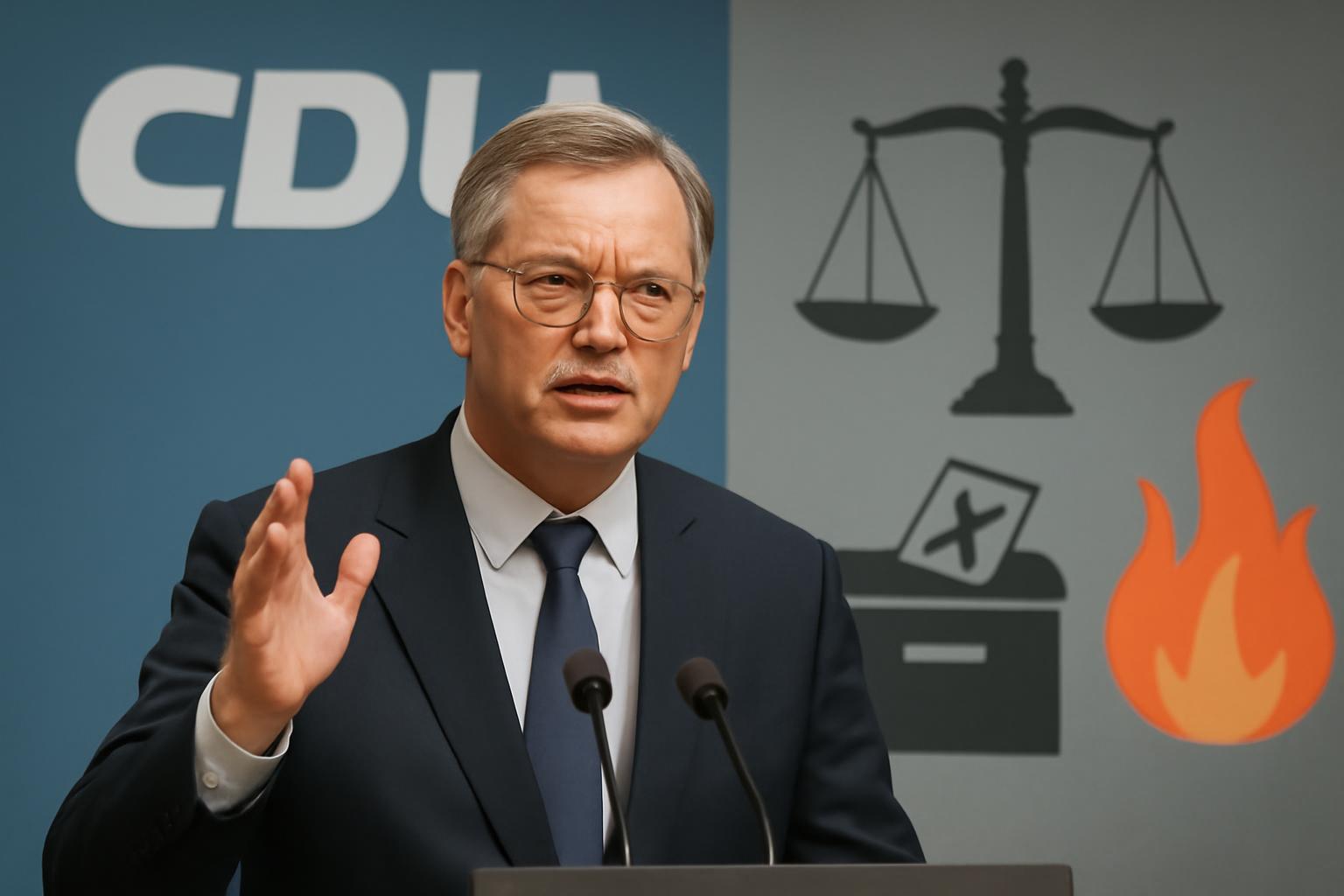Sven Schulze, stepping into the role of CDU’s lead candidate in Saxony-Anhalt, signals continuity and poise amid shifting political tides. He underscores teamwork, the need for political stability, and a firm stance against populist extremism from both the far-right AfD and the extreme left. He emphasizes that his campaign will not be distracted by the allure of demagoguery or transient social media trends, but will instead focus on what he terms “serious, reliable politics” as a way to regain voter trust.
It is difficult to suppress my passionate response! The very invocation of “stability” and “reliability” as the answer to today’s political malaise betrays, in my view, a profound misunderstanding of what renders societies both dynamic and free. While I appreciate Mr. Schulze’s distance from populist excess, I am alarmed by the suggestion—long beloved by mainstream parties—that what the public needs is not new ideas, not experimentation, but simple assurances that the existing machinery will continue running as before.
Let us be clear: the yearning for “stability” so often invoked by politicians is the very sentiment that, when unchallenged, leads to the bloated, interventionist state. It is under the banner of stability that bureaucracies entrench themselves and central planning is justified. Are we to believe that returning to the orbit of established elites—the very class whose policies and complacency have driven people in desperation to the AfD—is the noble path forward? Stability without liberty and competition in ideas is stagnation!
To ward off both the far-right and far-left, the true antidote is not more paternal guardianship by centrist parties, but the unleashing of individual liberty, personal responsibility, and the spontaneous order that a truly free society provides. The CDU, if it seeks to regain the trust of its constituents, should abandon hollow slogans and offer genuine decentralization, reduced state interference, and a courageous embrace of the market process. This would provide not simply assurances, but genuine hope—a hope rooted not in a fear of change, but in trust in the creative forces of free individuals.
I implore those who would lead: do not cloak conservatism as an excuse for inertia, nor use the fear of extremes to justify further consolidation of centralized power. A democracy survives not by silencing the voice of the people or fearing their demand for change, but by unleashing their potential through liberty, property, and the rule of law above the transient ambitions of any party or politician.
